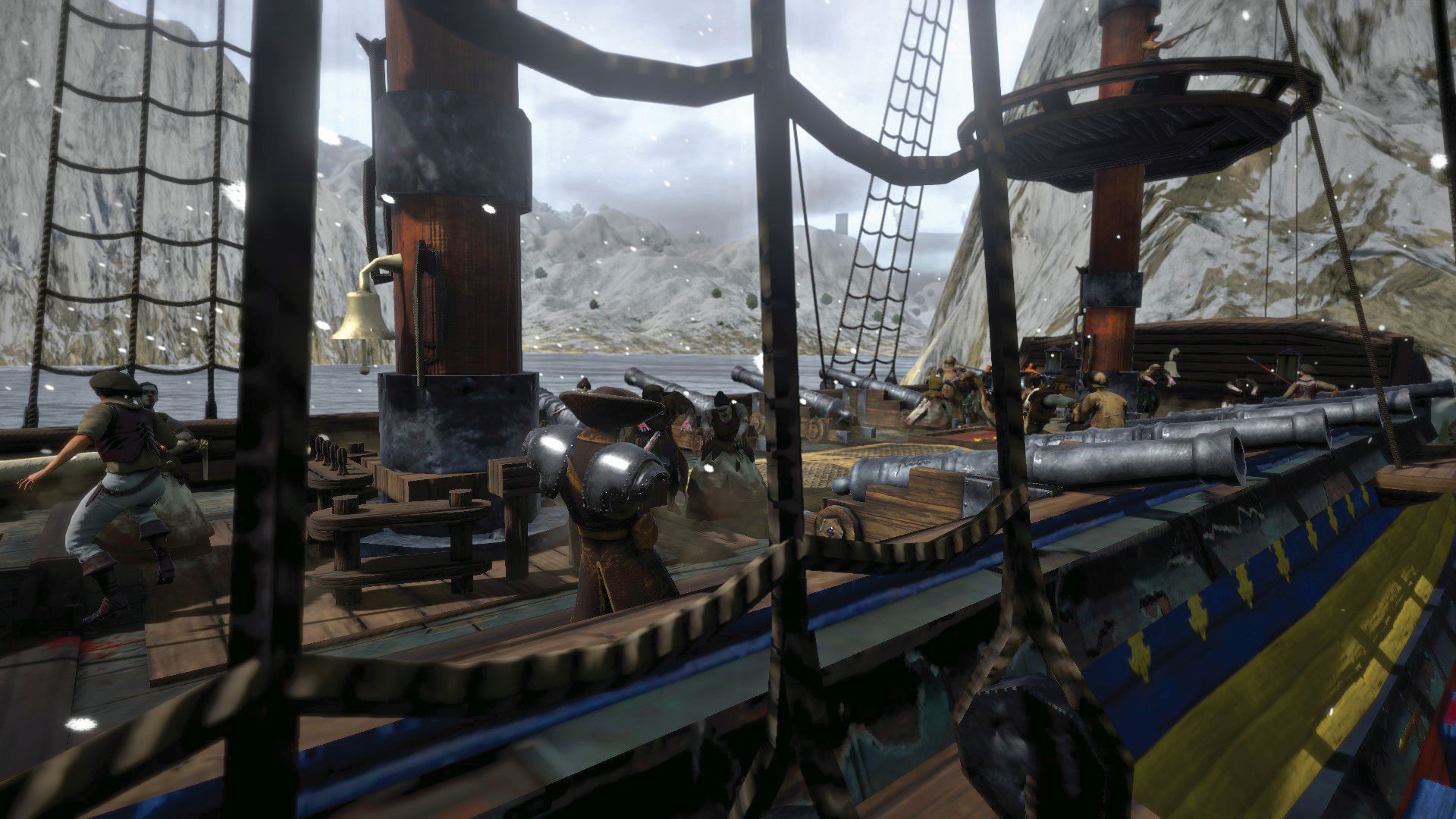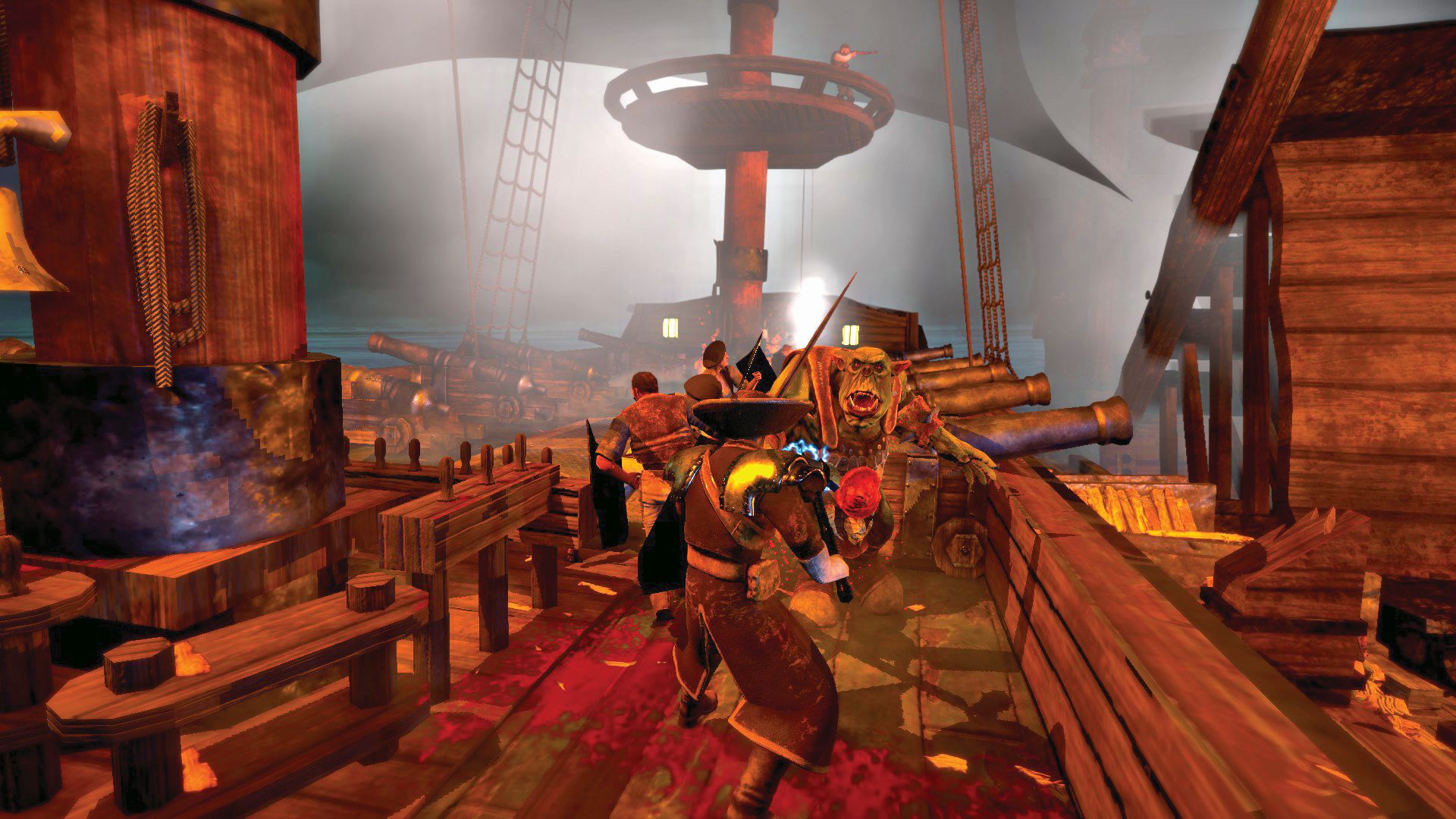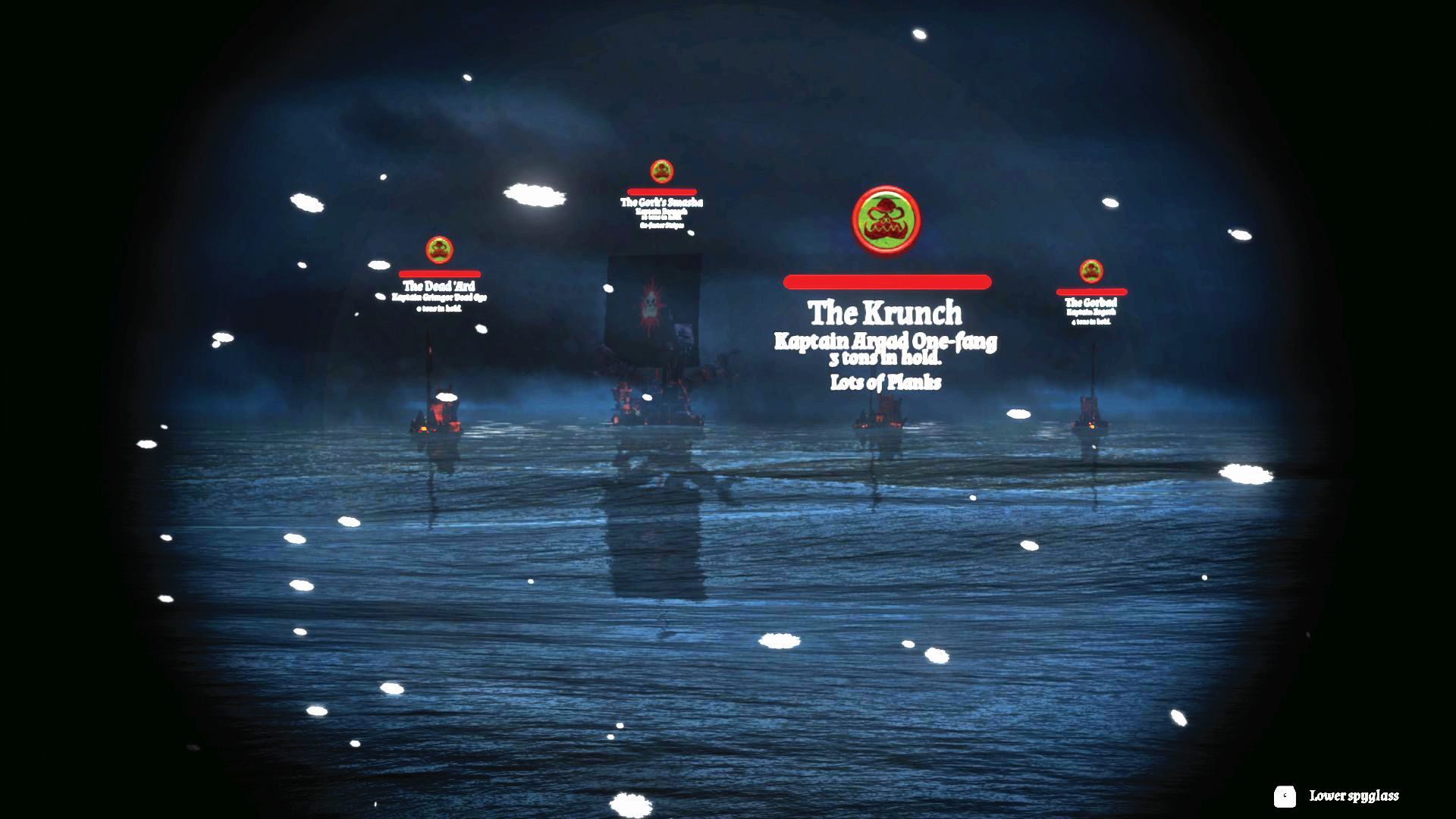Our Verdict
Bold and enjoyable at times, unplayable at others, Man o’ War: Corsair is too leaky to wholeheartedly recommend.
PC Gamer's got your back
What is it Naval action in the Warhammer Fantasy open world
Publisher Evil Twin Artworks
Developer Evil Twin Artworks
Reviewed on Windows 10, 16GB RAM, Intel Core i7-7700, NVidia GeForce GTX 1070
Expect To Pay £23 / $30
Multiplayer None
Link Official site
Buy it Humble Store
Read our affiliates policy.
There’s something orcish about Man o’ War: Corsair. Despite gimcrack construction, it holds together through collective force of will, delivering some thigh-slapping flashes of brilliance bolstered by a boisterous score and vivid setting. But they’re counterbalanced by moments of shambolic, tumbling failure, where the game feels unfinished. But even then, as you stare at the floating fragments of vessel this could have been, it’s an oddly endearing wreck. Gork (or maybe Mork) would be proud.
If you’ve lost track of which tie-in game this is—in the time it’s taken you to read this, three new Warhammer games have probably been announced—Man o’ War is an open-world naval action game based on an out-of-print Games Workshop tabletop title. You can play straight up versus battles, but at its heart is a campaign mode which sees you sailing around the jagged shores of the Old World, visiting places every Warhammer fan will recognise. It feels lovely to explore a coastline previously only glimpsed in the maps of tattered army books, and the scale is impressive. What you actually do, however, is up to you.
As the captain of an independent ship, you can dock in ports, trade goods, and complete missions for the various factions in the game. Or, if you’re feeling piratical, you can hunt down leaden cargo ships and make your fortune selling stolen goods. Your behavior affects your standing with each race. You can happily make a living as an Empire privateer, for example, preying off their political enemies. There’s a wonderful sense of freedom, and the world has economy worth exploiting. Heard a port is suffering from famine? Load up with food, sail there, and sell it at an inflated price. There are opportunities everywhere.
The variety of missions is decent, too, bringing character to a game that would otherwise be (ironically) dry. In the first few hours I quelled an undead plague on my ship; liberated a magical hammer from religious zealots; and raced a rival captain while drunk. The missions are all simply presented, with bare text boxes rather than grand cinematics, but it works in the setting. My favourite experiences came from getting swept up in the simple moments—hearing the music flourish while sailing through stormy seas, or watching the sun rise after a night spent battling a massive shark. It’s a game alive with anecdotes, and it benefits from a generous imagination.
You'll need to be generous, though. At times the game is shaky to the point of collapse. The essential stuff is handsomely done—ships are cleanly designed, and the rolling seas look impressive—but everything feels tired. Characters resemble Warhammer models dipped in unthinned paint, and move with a similar absence of grace. Aside from the occasional shipwright, every port you visit is essentially the same, regardless of how large the city is. Combat is fine when you're firing cannon into enemy ships and watching the splinters fly, but hand-to-hand engagements look weary by comparison. Despite this, there's something satisfying about making fighting work—I love the feeling of connecting magical hammer with orc head—but it lacks finesse in a Mount and Blade sort of way. Elsewhere, it’s a case of great ideas being executed poorly. The first few encounters with sea monsters are terrifying and brilliant, but they become stale when you figure out attack patterns. Most are limited to specific areas on the map, too, which diminishes the sense of unknown threat from the deep. It's also worth noting that the release version only lets you play as one of the four Chaos factions (it's Khorne, obviously—the Manchester United of Ruinous Powers).
These problems contribute to the sense that Man o' War is a fun game scuppered by its own ambition. It almost delivers on that promise, but it’s superficial. You'll certainly have moments when you feel like a dashing captain, sailing perilous seas, but after 10 hours the gaps between the boards begin to show. It’s also suspiciously easy. Many encounters give you a thrilling sense of being in danger, but it’s a theme park. The threat isn’t real. But the fact it tries so hard to cram in all these ideas is uplifting, and I persevered with it despite the faults. Aside from occasional game-breaking glitch—at one point, my captain floated off like Tzeentch’s chosen—the problems are forgivable if you love the setting enough, especially given the lack of compelling age-of-sail games.
If you’re similarly forgiving, there’s genuine adventure to be found in Man o’ War: Corsair, but it’s impossible to recommend unconditionally in its current state. You get the sense that this is a game that will improve over time, but right now, the asking price seems steep for a game that feels so wobbly.
Keep up to date with the most important stories and the best deals, as picked by the PC Gamer team.
Bold and enjoyable at times, unplayable at others, Man o’ War: Corsair is too leaky to wholeheartedly recommend.




